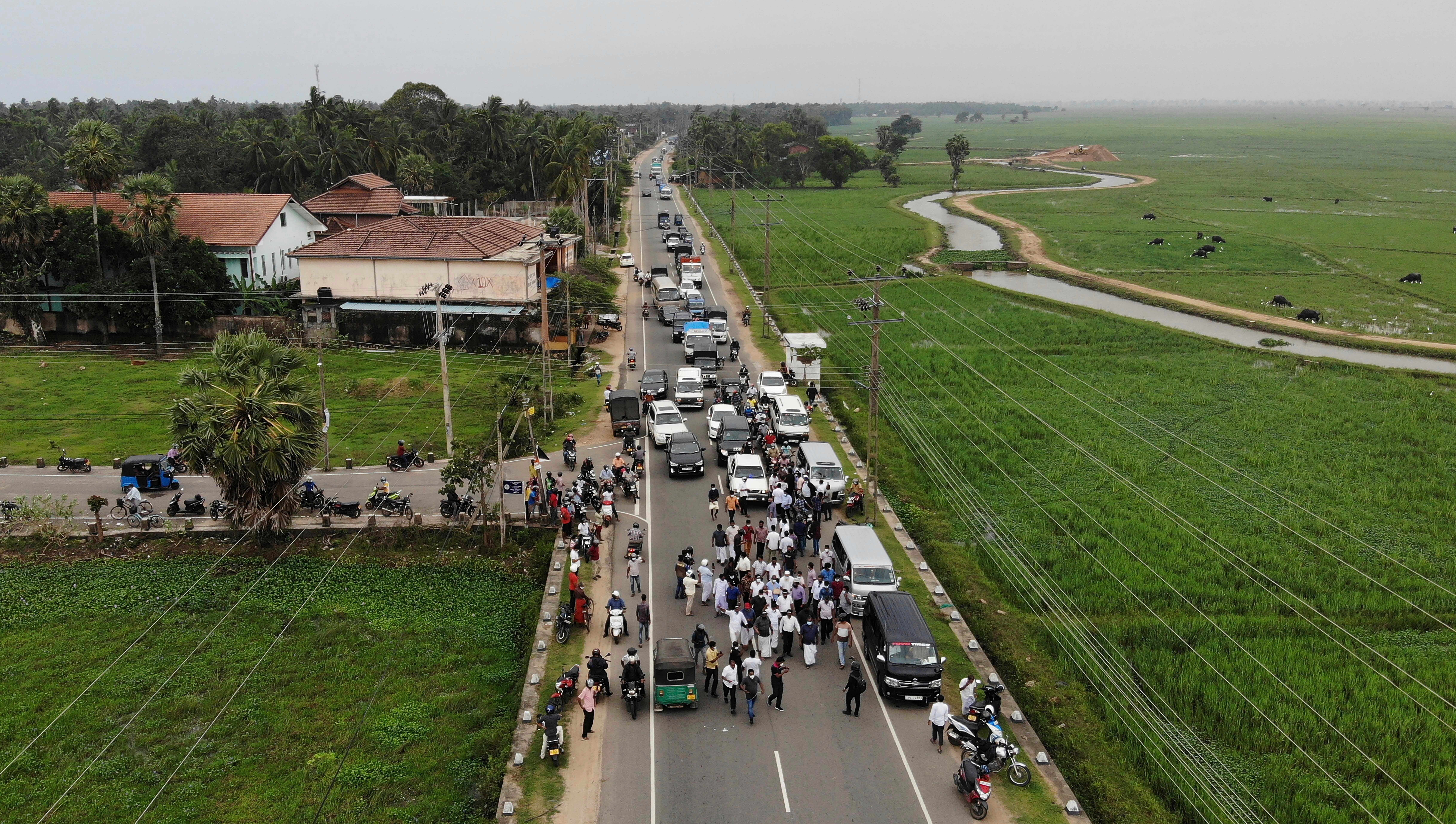Sri Lanka Tamils march to protest deaths, disappearances
Hundreds of ethnic Tamils have begun a four-day protest march from eastern to northern Sri Lanka to demand justice for civilians killed and forcibly disappeared during the country’s civil war, allegedly at the hands of the government’s military

Your support helps us to tell the story
From reproductive rights to climate change to Big Tech, The Independent is on the ground when the story is developing. Whether it's investigating the financials of Elon Musk's pro-Trump PAC or producing our latest documentary, 'The A Word', which shines a light on the American women fighting for reproductive rights, we know how important it is to parse out the facts from the messaging.
At such a critical moment in US history, we need reporters on the ground. Your donation allows us to keep sending journalists to speak to both sides of the story.
The Independent is trusted by Americans across the entire political spectrum. And unlike many other quality news outlets, we choose not to lock Americans out of our reporting and analysis with paywalls. We believe quality journalism should be available to everyone, paid for by those who can afford it.
Your support makes all the difference.Hundreds of ethnic Tamils began a four-day protest march from eastern to northern Sri Lanka on Wednesday to demand justice for civilians killed and forcibly disappeared during the country s civil war, allegedly at the hands of the government's military.
Politicians, civil and religious leaders on foot and in cars joined the march, which is also protesting alleged plans by the government to change the demography of the traditional Tamil heartland by settling majority Sinhalese there and taking over private lands.
Sri Lanka marks its 73th anniversary of independence from British colonial rule on Thursday. The approximately 500-kilometer (300-mile) march from the east to the north, which Tamils consider their homelands, is to end Saturday.
Relatives of missing people have also started a fast to mark Independence Day.
The protests come after Sri Lanka rejected a report by U.N. human rights high commissioner Michelle Bachelet who called for “international action to ensure justice for international crimes" allegedly committed during the 26-year civil war.
She said in the report last week that Sri Lanka has “largely closed the possibility of genuine progress being made to end impunity through a domestic transitional justice process." She said member countries now have the option of referring Sri Lanka to the International Criminal Court and investigate and persecute violations of international law under “accepted principles of extraterritorial or universal jurisdiction.”
In a 2015 resolution, the Sri Lankan government at the time pledged to investigate alleged war abuses through local courts and provide reparations. However, current President Gotabaya Rajapaksa has withdrawn from the resolution.
Rajapaksa played a key role as a top defense official in the government led by his brother, former President Mahinda Rajapaksa, which defeated ethnic Tamil rebels who fought to create an independent state.
Both the government and Tamil Tiger rebel group were accused of serious human rights violations.
Government spokesman Keheliya Rambukwella said the government has rejected the report.
“We are planning our strategy (to respond) and we will make our position clear," he said.
Initial conservative U.N estimates said about 100,000 people were killed in the civil war. A later U.N. experts' report said as many as 40,000 ethnic Tamil civilians may have been killed in just the final months of fighting.